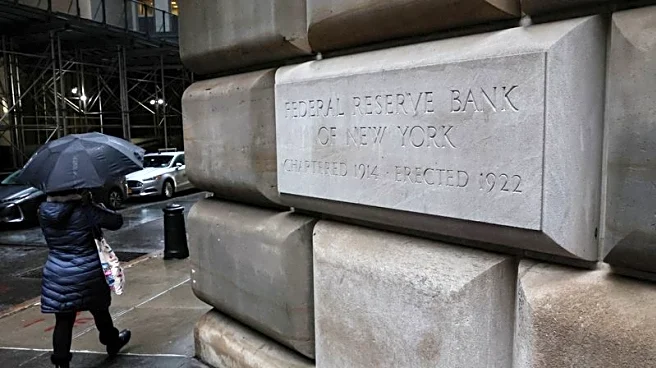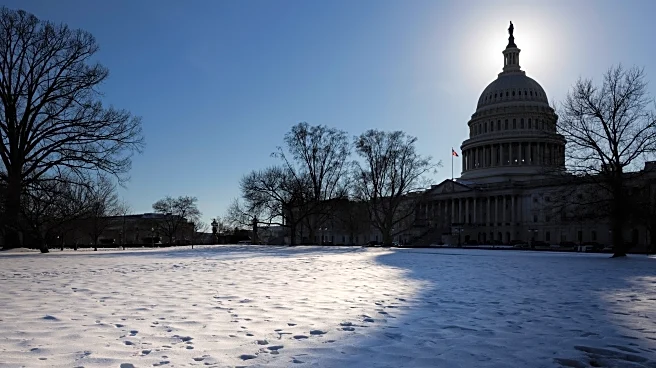What's Happening?
As the government shutdown reaches its 31st day, President Trump is urging Senate Republicans to eliminate the filibuster to pass a government funding bill. The filibuster requires 60 votes for most Senate legislation,
allowing Democrats to block GOP efforts. The shutdown is affecting millions of Americans, with potential lapses in food assistance and other services. Despite some signs of compromise, no immediate resolution is in sight.
Why It's Important?
The prolonged shutdown is causing significant disruptions across the country, affecting low-income families and government services. President Trump's call to end the filibuster highlights the deep political divisions and the challenges in reaching a bipartisan agreement. The situation underscores the broader implications of legislative gridlock on governance and public welfare.
What's Next?
Lawmakers are expected to continue negotiations, with potential compromises on the horizon. The outcome could influence future legislative processes and the balance of power in Congress. The shutdown's impact may also affect public opinion and political dynamics ahead of upcoming elections.
Beyond the Headlines
The debate over the filibuster reflects broader questions about democratic processes and the balance of power in the U.S. government. The situation raises ethical considerations about the use of procedural rules to block legislation and the responsibilities of elected officials to their constituents.












